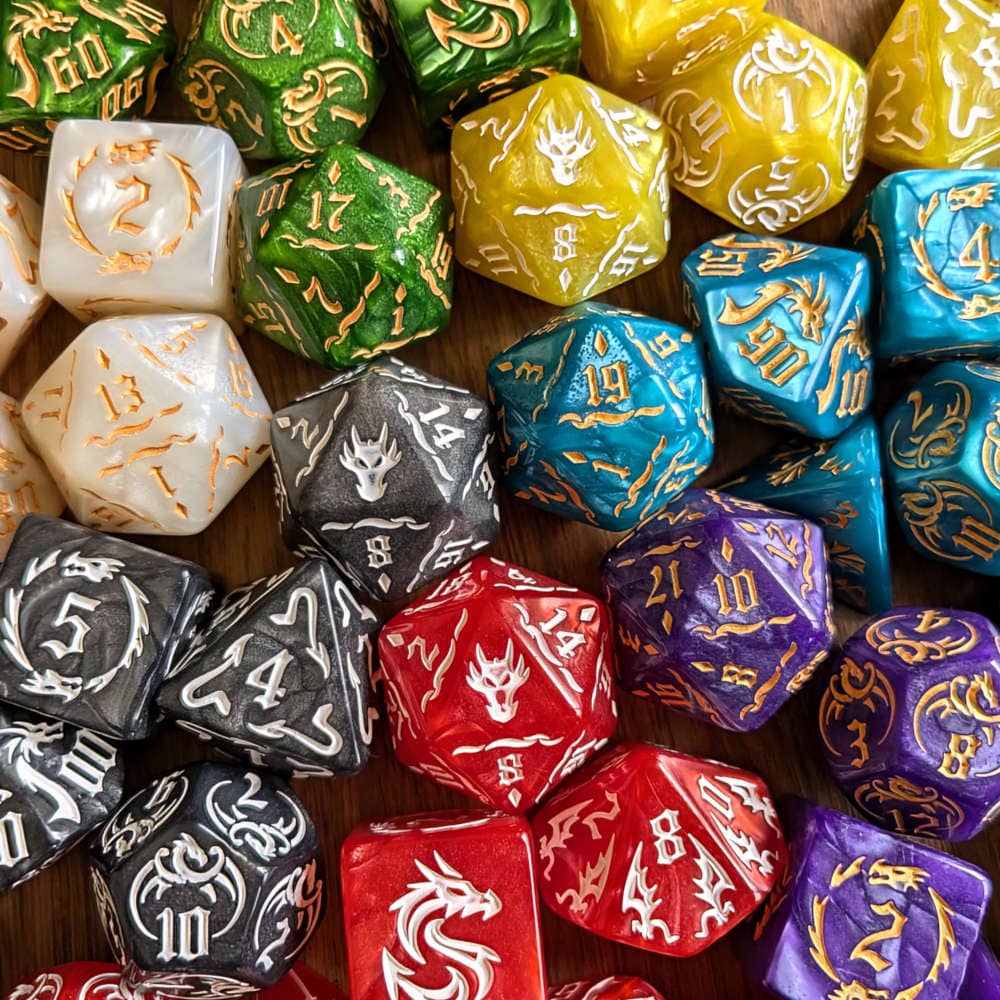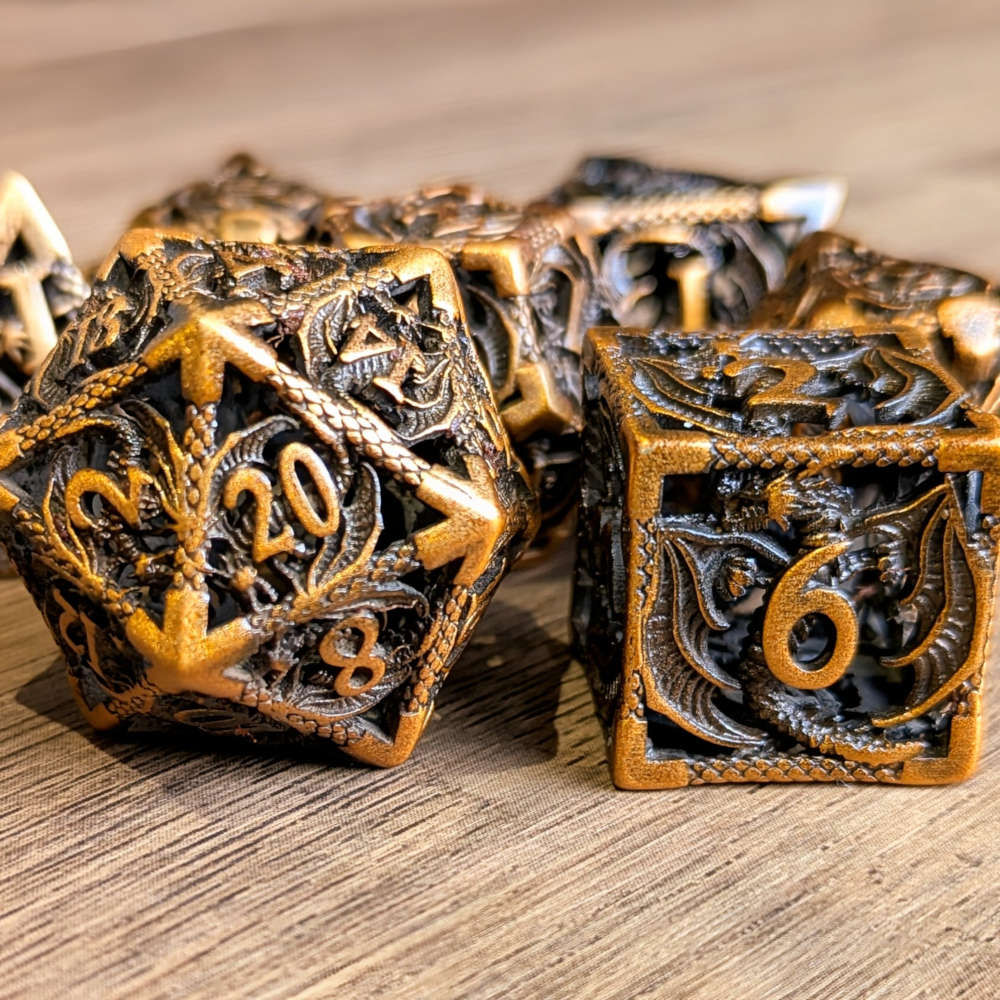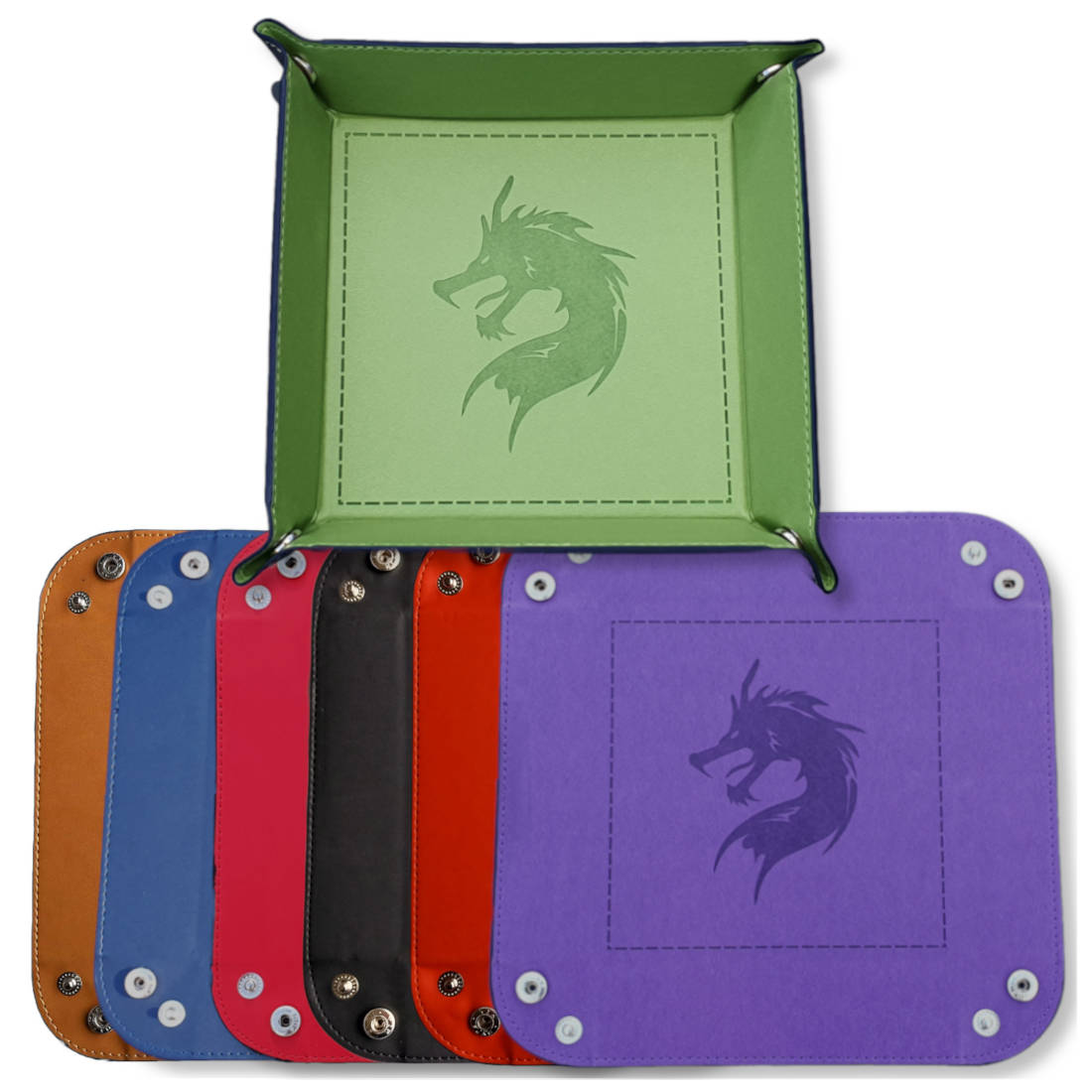Differences between D&D in-person and online

Dungeons & Dragons (D&D), the legendary tabletop role-playing game, has been captivating the hearts and minds of adventurers for decades. Whether you're delving into ancient crypts, battling chromatic dragons, or uncovering forgotten lore, D&D offers a captivating journey into the realms of fantasy.
Yet, as the game evolves, so does the way we play. Traditionally enjoyed around a physical table with friends, D&D has also found its way into the digital realm, where adventurers can gather online to embark on epic quests.
In this article, we'll delve into the key differences between playing D&D in-person and online. Whether you're a seasoned Dungeon Master or a novice adventurer, understanding these distinctions can help you choose the best path for your next journey into the world of DND.
Can you play DND with random people?
Absolutely! One of the most enchanting aspects of D&D is its ability to bring together people from all walks of life, forming bonds through shared adventures and storytelling. Playing D&D with strangers can be an incredible way to expand your horizons and make new friends who share your passion for tabletop role-playing.
In the digital age, finding fellow adventurers has never been easier. While starting a campaign with strangers may seem daunting at first, the collaborative nature of D&D fosters a welcoming and inclusive environment, making it an ideal space to meet new friends. Check out our guide that explains how to find a DND group.
Is D&D an online or in-person game?
Dungeons & Dragons in its original form is an in-person tabletop role-playing game. Traditionally, players gather around a table, often adorned with character sheets, maps, and an array of dice, to embark on epic adventures together. The physicality of rolling dice, drawing maps, and sharing snacks with friends contributes to the immersive experience that has made in-person D&D a cherished pastime for generations.
However, D&D has evolved significantly in recent years, thanks to the rise of online platforms and tools. The game has seamlessly transitioned to the digital realm, enabling players to come together from across the globe, breaking the geographical barriers that once limited play.
What do I need to bring to play D&D in-person?
When gathering around the tabletop for an in-person Dungeons & Dragons session, it's essential to come prepared. Here's a checklist of items you should consider bringing to ensure a smooth and enjoyable game:
D&D checklist for a player
- Dice: a complete set of polyhedral dice, including the iconic 20-sided die (d20), is a must-have. If you’re not sure, check out our guides that explains how D&D dice work and which you need, and how many dice you need for D&D.
- Character sheet: your character sheet is your lifeline in the game, containing vital information about your character's abilities, inventory, and backstory.
- Notepad and pen: handy for taking notes, tracking inventory, and jotting down important information about your campaign.
- Miniatures or tokens: if your group uses miniatures or tokens to represent characters and creatures on a battle map, make sure to bring yours.
- Rulebooks: while not always necessary, some players prefer to have the Player's Handbook on hand for quick reference.
- Snacks and drinks: it's common for D&D sessions to last many hours, so having some snacks and beverages can help keep energy levels up.
D&D checklist for a Dungeon Master (DM)
- Campaign notes: as all good DMs do, you'll have made detailed notes about the adventure, including NPCs, locations, and plot points.
- Monster stat blocks: if you anticipate combat encounters, having the stat blocks for monsters you plan to use ready will speed up gameplay.
- Maps and props: prepare any battle maps or props you'll use during the session. These can enhance the immersion of the game.
- Screen: a DM screen can hide your notes and rolls from players, allowing you to keep some surprises up your sleeve.
- Rulebooks: having the core rulebooks, especially the Dungeon Master's Guide, can be helpful for resolving rules disputes.
- Dice: like players, DMs often need a variety of dice for various purposes, including rolling for monsters and NPCs. Check out our guide that explains how many dice a DM needs.
Pros of playing DND in-person
Playing Dungeons & Dragons in-person has its own unique advantages that make it a cherished gaming experience for many:
- Easier to get everyone involved: when sitting around the same table, it's easier to engage all players in the game. You can make eye contact, ask questions, or encourage quieter players to participate.
- Fun to hang out with friends: real-life D&D sessions turn into social gatherings, allowing you to spend quality time with friends or make new ones. It's a great way to bond and build camaraderie.
- Body language and gestures: in-person play allows you to observe and utilise body language and gestures to enhance role-playing. Facial expressions, hand movements, and physical interactions can add depth to the storytelling.
- Reading the room: it's easier to gauge the mood and engagement levels of your fellow players when you can see them in-person. You'll notice if someone is getting bored or excited, and you can adapt the game accordingly.
- Table-talk and debriefing: table-talk, those informal discussions and debates that happen during play, flows more naturally in-person. After a session, it's easier to debrief and share your favourite moments or strategise for the next adventure.
- Enjoy other activities: in addition to D&D, you can enjoy other activities with your friends during in-person gatherings, like sharing meals, watching movies, or playing board games. In-person D&D facilitates a holistic social experience.
- Great for improving social skills: D&D encourages social interaction, teamwork, and communication. These skills are not only valuable in the game but also in real-life situations, making in-person play an excellent way to improve your social skills. Not only that, but DND is good for your mental health.
Cons of playing DND in-person
While in-person D&D offers numerous advantages, it also comes with its own set of challenges:
- Costly accessories: to enhance the in-person experience, DMs often purchase maps, miniatures, props, and other physical accessories. These can add up, especially if you're keen on a visually immersive game.
- Scheduling difficulties: coordinating schedules for an in-person game can be challenging, especially if group members must travel significant distances to meet. Finding a suitable time that works for everyone can be a logistical puzzle. To help with this, check out our guide that explores how often a DND group should meet.
- Finding a group: if you don't already have a network of friends interested in playing D&D, it can be difficult to find an in-person group to join.
- No fog of war or surprises: creating the sense of mystery and exploration in an in-person game can be tricky. Managing manual map uncovering or fog of war mechanics, where players only see parts of the map as they explore, can be cumbersome.
- Forgetting game materials: if you or another player forgets to bring essential game materials like character sheets, D&D dice, or rulebooks, it can disrupt the flow of the game. You may find yourself stuck or needing to improvise.
- Space constraints: depending on the available play space, it might be challenging to accommodate everyone comfortably. Crowded tables can lead to discomfort during longer gaming sessions.
- Distractions: in-person games can be susceptible to distractions from the physical environment, such as noise, interruptions, or conversations that lead away from the game.
How can you play D&D online?
Playing D&D online has become increasingly popular, thanks to various virtual tabletop (VTT) platforms. These platforms allow you to recreate the tabletop experience in a digital environment.
To play D&D online, you'll typically need a VTT like Roll20 or Foundry, in addition to a voice communication app such as Discord, Skype, or Zoom. These tools enable you to gather your group, roll virtual dice, display maps and character sheets, and communicate with ease, even if your fellow players are on the other side of the world.
Pros of playing DND online
Playing D&D online offers several advantages:
- Easier to setup and run: online play eliminates the need for physical setup, making it quicker to jump into the game.
- Convenient scheduling: scheduling is more manageable as players can join from the comfort of their homes, avoiding travel time and distance constraints.
- Access to more games: online platforms provide access to a wide range of games and players, increasing your options for finding or creating a group.
- Session flexibility: online play allows you to pause a session mid-action and resume seamlessly, making it easier to accommodate varying session lengths. You can also easily agree how long a DND session should be.
- Resource abundance: the internet offers a wealth of resources, from virtual tabletops to map-making software such as Wonderdraft, enhancing the overall gaming experience.
- Efficient note management: online tools such as World Anvil help you organise and manage game notes and resources more efficiently.
- Global community: you can connect with players from all over the world, expanding your gaming network and experiencing diverse playstyles and perspectives.
Cons of playing DND online
While online play offers many advantages, it also comes with its fair share of challenges:
- Digital distractions: players may find it easier to become distracted by the internet or other temptations, making it harder to keep everyone engaged.
- Lack of personal interaction: the absence of physical presence can lead to feelings of loneliness and a less personal gaming experience.
- Technical issues: connection problems or technical glitches can disrupt the flow of the game, leading to frustration and delays.
- Communication hurdles: without body language cues, conversing can be awkward, and players may inadvertently interrupt one another.
- Focus challenges: it can be more challenging to stay focused, especially when it's not your turn, which might lead to disengagement.
- Dependency on technology: online play relies heavily on technology, which can be unreliable and prone to issues.
- Distanced social interaction: while you can meet people from around the world, the social interaction is distanced, lacking the immediate connection of in-person play.
Which is better: D&D in-person or online?
The choice between in-person and online D&D depends on various factors and personal preferences. There's no one-size-fits-all answer, as each option offers unique benefits and challenges.
If you're new to D&D, online play can serve as a comfortable starting point. If you’re looking to play DND but have social anxiety, it allows you to ease yourself into the game while in the comfort of your own home. Ultimately, the best choice is the one that aligns with your preferences and group dynamics. Try out both options to discover what’s best for you!
Whether you prefer the tactile sensation of rolling dice on a tabletop or the convenience of playing online, D&D offers incredible experiences in both cases. As you embark on your adventures, don't forget to treat yourself to a metal dice set or a dice tray. They're the perfect companions for your epic quests, enhancing your gaming experience whether you gather around a physical table or convene in the digital realm.





